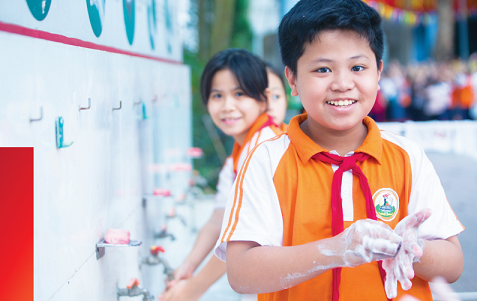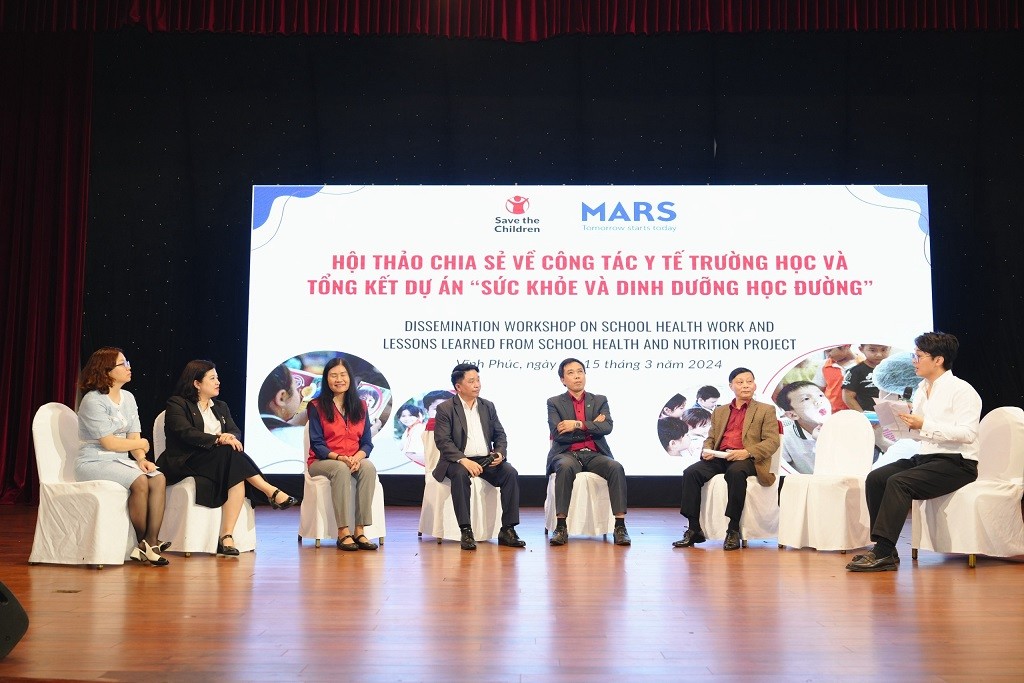
Enhancing school health and nutrition for Vietnamese children: Workshop
Latest
 |
| 'School health and nutrition' Project has been implemented for the past 12 years (2011-2024) at 125 kindergartens, primary schools and secondary schools in Ha Dong (Ha Noi), Hai Phong, Ho Chi Minh city and Tien Giang. (Source: Save the Children) |
'School health and nutrition' Project has been implemented for the past 12 years (2011-2024) at 125 kindergartens, primary schools and secondary schools in Ha Dong (Ha Noi), Hai Phong, Ho Chi Minh city and Tien Giang.
The workshop not only assessed the effectiveness of activities but also provided partners and delegates with a chance to exchange opinions, share experience, and highlight successful models in school health work in Vietnam.
The workshop was honored to have representatives from the Ministry of Health, Ministry of Education and Training, donors, and nearly 100 delegates from various Departments of Education and Training across the country to participate in the event.
The 'School health and nutrition' project has been implemented in three Asia countries (including China, the Philippines and Vietnam) with the aim of enhancing the health and educational outcomes of school-aged children by promoting the use of health and nutrition services within schools. In Vietnam, the project's initiatives are aligned with the ongoing efforts to implement the National Strategic Goals of the School Health Program during the periods of 2011- 2015, 2016-2020, and 2021-2025.
In addition to addressing traditional school health and nutrition topics like oral health, age-appropriate nutrition, regular health check-ups, and children's eyesight protection, the project also tackles pressing issues such as sex and gender education, reproductive health, mental health, and gender-based violence in schools.
 |
| The workshop not only assessed the effectiveness of activities but also provided partners and delegates with a chance to exchange opinions, share experience, and highlight successful models in school health work in Vietnam. (Source: Save the Children) |
Through six phases, the project supported to improve facilities at 122 handwashing areas, toilets, school gardens, etc., along with 30,000 integrated classes on oral health and school health education, 460 school-level communication activities and 196 student clubs being organized.
According to the endline survey conducted in December 2023, 70.9% of students, 49.3% of caregivers, and 50.3% of teachers showed an improvement in knowledge, skills, and behaviors related to school health and nutrition. During the 2022-2023 school year, the percentage of students who considered their school toilets clean and safe increased by 16.4% compared to the previous period, resulting in 84.5% of students utilizing the school toilets. The collaboration between schools, caregivers, and students has played a crucial role in enhancing school health and nutrition practices, with 98.6% of caregivers who participated in the message program sharing and applying these topics at home with their children.
Based on the positive outcomes of the project, its model has been disseminated to an additional 142 schools, receiving favorable feedback. Furthermore, all project schools have committed to sustaining and disseminating educational and communication activities related to school health and nutrition in the future.
Notably, the content of the Information, Education, and Communication (IEC) documents under the project has been endorsed by the Ministry of Education and Training and incorporated into the "Capacity Building Documents for School Health Staff” as per Decision no. 354/QĐ BGDĐT issued on January 22, 2024.
| Save the Children is an international NGO that works to ensure children’s rights to survival, protection, development, and participation in a reality worldwide. It was established in the UK in 1919 and is currently working in approximately 116 countries. |
| Mars Wrigley Foundation focuses on nurturing wellbeing to improve lives and inspire happiness in our communities through various projects on providing oral health education and care, creating resilient and vibrant communities, and strengthening social connections. |













